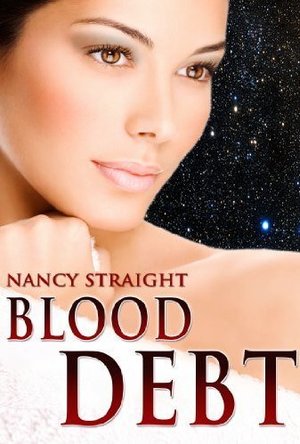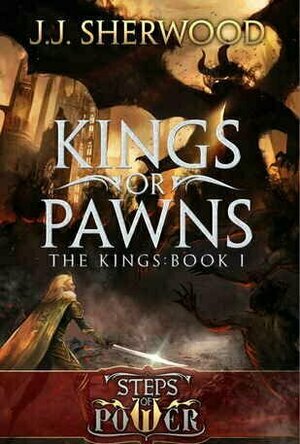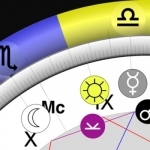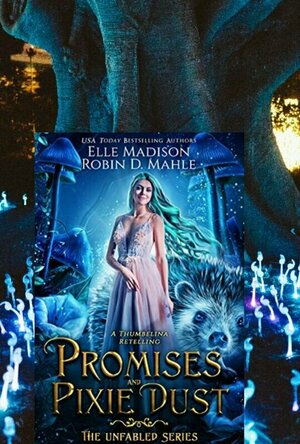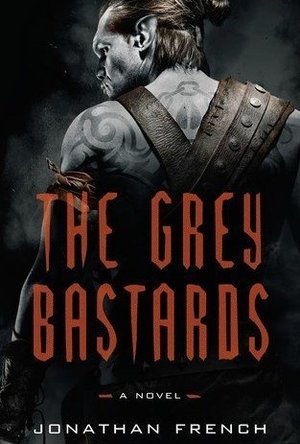Search
Search results
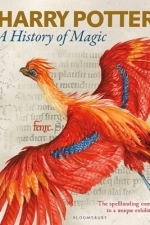
Harry Potter: A History of Magic
Book
Harry Potter: A History of Magic is the official book of the exhibition, a once-in-a-lifetime...
Fantasy technical
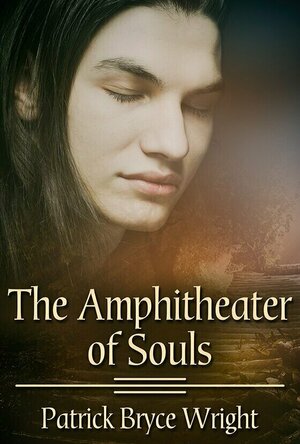
The Amphitheater of Souls
Book
When a plague ravages his village, the shaman Cian sails to the land of the dwarves for a cure....
MM Dark Fantasy Romance Found Family Soul Mates
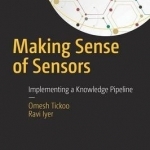
Programming Guide for Wearable Computing: End-To-End Algorithms and Infrastructure Design from Wearable-Devices to Data Centers: 2017
Omesh Tickoo, Ravishankar K. Iyer and Yueheng Xu
Book
Make the most of the common architectures used for deriving meaningful data from sensors. This book...
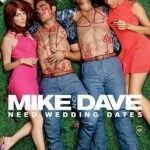
Mike and Dave Need Wedding Dates: And a Thousand Cocktails
Book
SOON TO BE A MAJOR MOTION PICTURE FROM 20TH CENTURY FOX My brother and I are looking for wedding...
Merissa (13792 KP) rated Blood Debt (Touched, #1) in Books
Dec 17, 2018
In a genre gone mad about vampires and shifters - and yes, I love them too! - it makes such a nice change to read something that steps away from the 'norm' and takes a more unusual look at things. This is what Nancy Straight does with her Blood Debt. This is the first book so it has a lot of groundwork to do so that you know what is happening. Nancy does this whilst also making it seamlessly part of the story, so you pick up the details without even being aware of it.
The other thing that I have enjoyed as a stand-out in this book, is there is no love-triangle. Gasp, shock, horror! How on earth can a book make it without a love-triangle? Easy - make it a love-square instead!!! This was wonderful to read and there were some real LOL moments as Cami is fighting her guilt and Bianca is trying to encourage her without letting her know that she knows.
The family relationships were quirky and loveable, in most cases. Some were just downright weird. And in the middle of this, you've got Cami. She isn't sure who or what she is, why people seem to have high expectations of her and why she feels like she just isn't who they think she is. Out of her brothers, Beau is my favourite but of course, that's the way it's been written so far.
If you want to read a book about Centaurs, Greek mythology, fantasy then this is the book for you. Personally, I can't wait to get Book 2 and see what happens. There are 4 books in this series and Book 4 is due to be released at the end of January. Definitely recommended!
The other thing that I have enjoyed as a stand-out in this book, is there is no love-triangle. Gasp, shock, horror! How on earth can a book make it without a love-triangle? Easy - make it a love-square instead!!! This was wonderful to read and there were some real LOL moments as Cami is fighting her guilt and Bianca is trying to encourage her without letting her know that she knows.
The family relationships were quirky and loveable, in most cases. Some were just downright weird. And in the middle of this, you've got Cami. She isn't sure who or what she is, why people seem to have high expectations of her and why she feels like she just isn't who they think she is. Out of her brothers, Beau is my favourite but of course, that's the way it's been written so far.
If you want to read a book about Centaurs, Greek mythology, fantasy then this is the book for you. Personally, I can't wait to get Book 2 and see what happens. There are 4 books in this series and Book 4 is due to be released at the end of January. Definitely recommended!
Phil Leader (619 KP) rated Kings or Pawns (Steps of Power #1) in Books
Nov 18, 2019
This book contains the usual staple fantasy races: elves, humans, dwarves, centaurs. There are epic battles and bold heroes, princesses in peril and magic. There is even a map at the front.
But that is where any similarity between this book and most other epic fantasy novels ends. Sherwood tells the tale of an elven country that has become corrupt with a ruling council who make decisions for reasons of profit, driving the rightful kings away and installing a puppet regime. Meanwhile the country is facing a war led by a brilliant defector.
When his father, the king, dies young Prince Hairem is determined to stand up to the council and stop the rot. But the council has ruled for hundreds of years, how can he possibly change things? Meanwhile Jikun, the general of the army must obey the council's wishes, even if the orders will only lead to destruction.
Sherwood starts with a few scenes and set pieces and gradually introduces the key players; Jikun is bold and brilliant but has a lot of inner demons which threaten to destroy him. Hairem is idealistic but naive.
The machinations of the council are real House of Cards type stuff, every way that Hairem tries to exert his authority blunted and diverted by the wily council members, who simultaneously try to make out they are on his side. As a political thriller this works amazingly well despite being set in a fantasy world; the descriptions and characters are perfectly pitched. It seems that pretty much everybody has dark secrets which everybody else is either trying to discover or use to their advantage.
There are scenes of action too, with Jikun and the army and also Sellemar mounting a daring raid into enemy territory plus duels and assasination attempts. This book really does have everything packed into it and the ending is both shocking and perfectly balanced to allow for further books in the series while satisfyingly closing a number of plot threads.
I was expecting a fairly standard fantasy book when I started this; what I got was an absolute gem that just begged to be read. A total masterpiece.
But that is where any similarity between this book and most other epic fantasy novels ends. Sherwood tells the tale of an elven country that has become corrupt with a ruling council who make decisions for reasons of profit, driving the rightful kings away and installing a puppet regime. Meanwhile the country is facing a war led by a brilliant defector.
When his father, the king, dies young Prince Hairem is determined to stand up to the council and stop the rot. But the council has ruled for hundreds of years, how can he possibly change things? Meanwhile Jikun, the general of the army must obey the council's wishes, even if the orders will only lead to destruction.
Sherwood starts with a few scenes and set pieces and gradually introduces the key players; Jikun is bold and brilliant but has a lot of inner demons which threaten to destroy him. Hairem is idealistic but naive.
The machinations of the council are real House of Cards type stuff, every way that Hairem tries to exert his authority blunted and diverted by the wily council members, who simultaneously try to make out they are on his side. As a political thriller this works amazingly well despite being set in a fantasy world; the descriptions and characters are perfectly pitched. It seems that pretty much everybody has dark secrets which everybody else is either trying to discover or use to their advantage.
There are scenes of action too, with Jikun and the army and also Sellemar mounting a daring raid into enemy territory plus duels and assasination attempts. This book really does have everything packed into it and the ending is both shocking and perfectly balanced to allow for further books in the series while satisfyingly closing a number of plot threads.
I was expecting a fairly standard fantasy book when I started this; what I got was an absolute gem that just begged to be read. A total masterpiece.
Lottie disney bookworm (1056 KP) rated Promises and Pixie Dust in Books
Jun 17, 2021
Thank you to the gorgeously talented Elle and Robin for granting me the opportunity to read their beautiful book in exchange for an honest review.
Promises and Pixie Dust is the first Thumbelina retelling I have seen in the current MASSIVE trend of retellings.
Initially this magical tale featured within the Enchanted Kingdoms collection of retellings but Elle and Robin have now released Lina upon the world as the debut novel in “The Unfabled Series”.
Naturally, a Thumbelina story by Elle and Robin is never going to be your average retelling and, when the story opens on "Lina" drinking pints in 'The Poisoned Apple', it is safe to say that this novel will be just as brilliant as their other works.
At a whole 12 cm tall, Lina has never entirely fit in with the world around her. Everything she owns is adapted to fit her size and she has never met anyone similar to herself. After the death of her mother Lina is determined to find someone else of her kind and, along with her childhood friend Edrich, journeys into the Enchanted forest in search of answers.
Edrich is an unwilling companion to put it mildly and the relationship between him and Lina is very intriguing for the reader. Elle and Robin purposefully drip feed us information regarding the friends and the challenges they have faced up to this point but the undercurrent of tension between the pair make it clear that there is more than friendship and obligation at play here.
This doesn't mean that the reader is not entirely unsympathetic to Edrich's frustration with Lina though. She is often sickeningly chirpy and optimistic with no sense of danger. At the end of the day though, a tiny woman whose mood shows on her skin and rides a hedgehog is a winner in any story.
Promises and Pixie Dust also hints heavily at a recent backstory involving Edrich as he experiences flashbacks and guilt linked to his current line of work. I really hope Edrich gets the chance to tell his own story as I know Piper and Neira will.
I really appreciated the little changes between the Enchanted Kingdoms story and The Unfabled series version. Poor Edrich was very difficult to love in the previous version but has definitely been hit with the empathy stick in recent months! Once his circumstances are (forcibly) changed Edrich almost has a newfound respect for Lina and even before this he isn’t as condescending as his Enchanted Kingdoms counterpart was – I no longer want to punch him in the face anyway so that’s a bonus!
Elle and Robin also developed the world of the fairies a little more, providing more of an insight into their dependence on woodland creatures and even inventing a new sport! The imagery here was so beautiful that I was desperate for illustrations to accompany it.
If you are a fan of retellings, Once Upon a Time, fairies and friends to lovers storylines then this is the tale for you. Promises and Pixie Dust has a freshly manicured hedgehog, a villain with a heart and the best curse words ever imagined.
Frolicking centaurs it's a good read!
Promises and Pixie Dust is the first Thumbelina retelling I have seen in the current MASSIVE trend of retellings.
Initially this magical tale featured within the Enchanted Kingdoms collection of retellings but Elle and Robin have now released Lina upon the world as the debut novel in “The Unfabled Series”.
Naturally, a Thumbelina story by Elle and Robin is never going to be your average retelling and, when the story opens on "Lina" drinking pints in 'The Poisoned Apple', it is safe to say that this novel will be just as brilliant as their other works.
At a whole 12 cm tall, Lina has never entirely fit in with the world around her. Everything she owns is adapted to fit her size and she has never met anyone similar to herself. After the death of her mother Lina is determined to find someone else of her kind and, along with her childhood friend Edrich, journeys into the Enchanted forest in search of answers.
Edrich is an unwilling companion to put it mildly and the relationship between him and Lina is very intriguing for the reader. Elle and Robin purposefully drip feed us information regarding the friends and the challenges they have faced up to this point but the undercurrent of tension between the pair make it clear that there is more than friendship and obligation at play here.
This doesn't mean that the reader is not entirely unsympathetic to Edrich's frustration with Lina though. She is often sickeningly chirpy and optimistic with no sense of danger. At the end of the day though, a tiny woman whose mood shows on her skin and rides a hedgehog is a winner in any story.
Promises and Pixie Dust also hints heavily at a recent backstory involving Edrich as he experiences flashbacks and guilt linked to his current line of work. I really hope Edrich gets the chance to tell his own story as I know Piper and Neira will.
I really appreciated the little changes between the Enchanted Kingdoms story and The Unfabled series version. Poor Edrich was very difficult to love in the previous version but has definitely been hit with the empathy stick in recent months! Once his circumstances are (forcibly) changed Edrich almost has a newfound respect for Lina and even before this he isn’t as condescending as his Enchanted Kingdoms counterpart was – I no longer want to punch him in the face anyway so that’s a bonus!
Elle and Robin also developed the world of the fairies a little more, providing more of an insight into their dependence on woodland creatures and even inventing a new sport! The imagery here was so beautiful that I was desperate for illustrations to accompany it.
If you are a fan of retellings, Once Upon a Time, fairies and friends to lovers storylines then this is the tale for you. Promises and Pixie Dust has a freshly manicured hedgehog, a villain with a heart and the best curse words ever imagined.
Frolicking centaurs it's a good read!
Sophia (Bookwyrming Thoughts) (530 KP) rated The Queen's Choice (Heirs of Chrior, #1) in Books
Jan 23, 2020
<i>The Queen's Choice</i> may not be my favorite faery book (it's far from being my favorite, but I didn't actually hate it), but it's definitely about time someone wrote about fairies in an entirely different way other than the usual summer and winter fairies.
Kluver has all the good things to write a fantastic book the world building is interesting, the characters are complex (for the most part), and her writing style is interesting enough that it somehow managed to keep my attention with the whopping 500 pages it has (for the most part).
On the fabulous elaborations of "for the most part," Anya and her companion (Shea, for the most part) probably spent approximately 300+ pages walking, getting attacked, and avoiding the Constabularies of the Warckum Territory. Then the cycle pretty much repeats itself no particular pattern. Anya spent approximately 100+ pages being healed before all of that walking, attacking, and avoiding began perhaps I'll even call it WAA for the fun of it all does it sound appealing? Probably not.
But somehow, in some way, Kluver managed to keep my attention, despite the fact I don't really "connect" to her writing. Maybe it's the writing style (eh... not really), or perhaps the complexity of her minor characters (Illumina and Shea are certainly complex enough that they're not entirely predictable). Maybe it's just the entire idea behind the book in the first place, though that part is most likely not true.
And then there's Anya. Anya the main character, Anya the Royal Faery of Chrior, and maybe Anya the Hopeless. Anya seems a little stereotypical or perhaps, more accurately, Anya simply makes quite a few assumptions sometimes that may be hilarious to a little human like me. Certainly not as hilarious as <i>Of Mice and Men</i>, to which I make fun of the book the entire time I'm reading it just so I'm not bored. It's no wonder why I'm called the sarcastic one among my circle of friends.
<blockquote>"Now, how do I get on this thing?" she asked, taking the reins to her mount from me.
"You don't know?"
"Nope. Not the slightest idea."
"I thought all humans knew how to ride horses."</blockquote>
You know, for a nonhuman who seems to visit the human world as often as possible, you would sort of expect them to not assume all humans can ride horses. Really, I'm not terribly sure how one can be born with a talent like riding horses. Though, oddly enough, that's probably possible. The person would then have to nurture it. But really, humans are not centaurs. For one to be a centaur, we're missing a horse's ass. Pardon my language (and the grotesque image coming soon), but no horse and certainly no human would appreciate being cut in half and glued together to become a centaur.
Grotesque image and crude comments aside, Kluver puts us at a sort of a cliffhanger with something Anya discovers about Illumina in the last couple pages in the book. Much as I'm interested in the sequel, I'm not terribly sure I want to continue reading about Anya walking and traveling constantly (and avoiding and being attacked).
<a href="https://bookwyrmingthoughts.com/review-the-queens-choice-by-cayla-kluver/"; target="_blank">This review was originally posted on Bookwyrming Thoughts</a>
Kluver has all the good things to write a fantastic book the world building is interesting, the characters are complex (for the most part), and her writing style is interesting enough that it somehow managed to keep my attention with the whopping 500 pages it has (for the most part).
On the fabulous elaborations of "for the most part," Anya and her companion (Shea, for the most part) probably spent approximately 300+ pages walking, getting attacked, and avoiding the Constabularies of the Warckum Territory. Then the cycle pretty much repeats itself no particular pattern. Anya spent approximately 100+ pages being healed before all of that walking, attacking, and avoiding began perhaps I'll even call it WAA for the fun of it all does it sound appealing? Probably not.
But somehow, in some way, Kluver managed to keep my attention, despite the fact I don't really "connect" to her writing. Maybe it's the writing style (eh... not really), or perhaps the complexity of her minor characters (Illumina and Shea are certainly complex enough that they're not entirely predictable). Maybe it's just the entire idea behind the book in the first place, though that part is most likely not true.
And then there's Anya. Anya the main character, Anya the Royal Faery of Chrior, and maybe Anya the Hopeless. Anya seems a little stereotypical or perhaps, more accurately, Anya simply makes quite a few assumptions sometimes that may be hilarious to a little human like me. Certainly not as hilarious as <i>Of Mice and Men</i>, to which I make fun of the book the entire time I'm reading it just so I'm not bored. It's no wonder why I'm called the sarcastic one among my circle of friends.
<blockquote>"Now, how do I get on this thing?" she asked, taking the reins to her mount from me.
"You don't know?"
"Nope. Not the slightest idea."
"I thought all humans knew how to ride horses."</blockquote>
You know, for a nonhuman who seems to visit the human world as often as possible, you would sort of expect them to not assume all humans can ride horses. Really, I'm not terribly sure how one can be born with a talent like riding horses. Though, oddly enough, that's probably possible. The person would then have to nurture it. But really, humans are not centaurs. For one to be a centaur, we're missing a horse's ass. Pardon my language (and the grotesque image coming soon), but no horse and certainly no human would appreciate being cut in half and glued together to become a centaur.
Grotesque image and crude comments aside, Kluver puts us at a sort of a cliffhanger with something Anya discovers about Illumina in the last couple pages in the book. Much as I'm interested in the sequel, I'm not terribly sure I want to continue reading about Anya walking and traveling constantly (and avoiding and being attacked).
<a href="https://bookwyrmingthoughts.com/review-the-queens-choice-by-cayla-kluver/"; target="_blank">This review was originally posted on Bookwyrming Thoughts</a>
Mandy and G.D. Burkhead (26 KP) rated The Grey Bastards in Books
May 20, 2018
Shelf Life – The Grey Bastards Exemplifies Grimdark Fantasy at Its Damn Finest
Contains spoilers, click to show
The Grey Bastards is a fun, foul-mouthed read. If you’re turned off by bad language, steamy sex, or a good plot with plenty of action and twists, then this book isn’t for you. The Grey Bastards falls into the fantasy sub-genre known as grimdark. Where high fantasy has your Tolkien beautiful and noble elves, dwarves, humans, and wizards with epic battles between good and evil, grimdark takes all of that and covers it in shit, pus, and blood. Notice how in high fantasy nobody ever takes a piss or fucks? In grimdark, everyone does.
But don’t be fooled into thinking this book will be any less intelligent, epic, or heartfelt for it. The Grey Bastards is all of that and more. The novel follows Jackal, a half-breed orc living in the Lot Lands, the barren desert wasteland of Hispartha. He is a Grey Bastard, one of many half-orc hoofs, each protecting its own small town in the Lots. Members of a hoof are elite warriors that ride out on their Barbarians—giant warthogs—and slaughter invading bands of orcs.
Hispartha is a vibrant world, with a mix of fantastical species (orcs, half-orcs, elves, humans, halflings, and centaurs) with unique cultures and religions. Hispartha itself takes influences from Reconquista Spain, which is especially noticeable in the nomenclature, geography, and architecture.
The primarily atheistic half-orcs recently won their freedom from slavery at the hands of humans. Humans treat the half-orcs like second-class citizens, but tolerate them because of their strength, using them as a shield from the orcs. The elves are beautiful, reclusive, and probably the most cliché; there is one important elf character, but for the most part, we don’t get a good look into their culture in the first book. The centaurs worship Romanesque deities and go on crazed, Bacchanalian killing sprees during the blood moon.
Besides the half-orcs, the halflings are perhaps the most interesting. I still have a hard time visualizing them, trying to figure out if they are thin, pixie-like creatures or more stocky like dwarves. Their small stature and black skin makes me think of pygmies. They worship a god they expect will reincarnate someday, (view spoiler)
One thing that has always annoyed me about fantasy is that many authors feel that the characters of their world, being pre-industrial and thus “medieval,” must all be white, straight, Christian (or proto-Christian), cisgender males. If a woman appears at all is to act as the damsel, prize, or, if she’s lucky, a mystical enchantress to guide the heroes or provide a maguffin. It has come to the point in which this has become a tired and accepted baseline for fantasy. I don’t necessarily think that these fantasy authors are intentionally trying to be uninclusive, so much as they just seem to forget that other groups of people can exist in fantasy thanks to its fathers, Tolkien and Lewis.
But enough with my rant, the purpose of which is to highlight why I am often drawn to grimdark fantasy: at the very least I know that women, people of color, lgbt people, and other religions will be present, even if they are often victimized. This is because grimdark fantasy honestly depicts the horrors of rape, war, murder, slavery, and racism (or rather, speciesism in most cases) and has heroes and villains that are morally grey.
However, many authors describe these atrocities and then leave it at that, assuming that simply depicting them is enough to make a book mature and meaningful. They often fail to make any sort of statement on evil, and thus can seem to be, at best, blindly accepting it and, at worst, glorifying it (this often happens in the cases of magnificent bastard characters, who are absolute monsters but are so charming you almost respect or like them).
Jonathan French, however, does not fall short of the mark as many authors do, and for two main reasons: humor and humanity.
Let’s start with the humor. This book is hilarious. I mean in the I literally laughed out loud while reading it way. Sure, the jokes are often crass, but I have a dirty mind, so inappropriate humor is my favorite kind. The dialogue is especially top-notch, and the interactions between Jackal and his friends Fetching and Oats feel genuine, full of in-jokes, insults, and sexually-charged humor, all of which are exactly how I interact with my own close friends. And every major character in this book is so damn witty that I’m honestly jealous of them. If I could be quick enough to make even one of their zingers at the right time in a conversation, I would feel proud of myself for the rest of the day.
Humor is necessary to prevent any grimdark fantasy from becoming too over-the-top or depressing. And honestly, humor is needed most when the world is a dark and frightening place. But too much humor could accidentally downplay the point of grimdark: the brutally honest depiction of the atrocities that people are capable of.
And this is where it is important to have an element of humanity. By this I mean that the “good guys” must make some action or statement on those atrocities. Too often I read or watch hardened badass characters with no emotion who can watch a person get tortured and killed without flinching (maybe even do it themselves) and who never stop to question the nature of their society (even as part of their character growth), and I have difficulty finding them at all relatable or even the least bit interesting.
Now, often for this type of character, he or she is dead inside as a coping mechanism and part of their character arc is learning to allow themselves to feel their repressed emotions: heartbreak, anger, fear, etc. This can be done very well (see The Hunger Games for a great example—dystopian scifi and grimdark fantasy have very similar undertones). But most times it just ends up falling flat.
But Jackal already starts out with more personality than most grimdark protagonists. He is a humorous and light-hearted person. Sure, he lives in a desert wasteland, his race is entirely created by rape, he’s treated as a second-class citizen, and his life and the lives of those around him are in constant danger of rape and/or murder by invading orcs or blood-crazed centaurs. But despite all of that, he still has a sense of humor, people he loves, a community, ambitions, moral code, and all of the other things that these protagonists are often lacking.
Don’t get me wrong, he can be an asshole, and he’s often acts rashly before he thinks. But the scene that really stuck with me the most was [when Jackal and the wizard Crafty come across an unconscious elf sex-slave. I was expecting him to say something along the lines of “There’s nothing we can do for her, we have to save ourselves” or “This isn’t any of our business” or “It would be best to just put her out of her mercy.” These are the typical lines that a grimdark protagonist might utter while their companion—accused of being a bleeding heart—frees the slave. But this was not the case. Jackal and Crafty both immediately set out to free the girl and steal her away from her owner, despite the danger to themselves. And when he comes across an entire castle-full of these women, Jackal again sets about freeing them without a moment’s hesitation. (hide spoiler)]
And it’s no surprise that Jackal has a serious problem with rape. As I’ve mentioned before, half-orcs are entirely the product of roving bands of orcs raping human, elven, or even half-orc women. [When Jackal learns that Starling, the elf slave he rescued, is pregnant with a half-orc baby, he is not only furious with the orcs that gang-raped her, but also disturbed by the fact that elven society shuns any of their women who have been raped, and that these victims often end up taking their own lives rather than give birth to an impure half-elf. (hide spoiler)]
Furthermore, Jackal, unlike many people in Hispartha, does not buy into misogyny or sexism. His best friend Fetching is the first female half-orc to have joined a group of riders. Not only does Jackal respect Fetching, he understands the emotional turmoil that she is dealing with being the first female rider and how she overcompensates as a result to earn the respect of the other men.
While there is quite a bit of speciesism (pretty much none of the species get along with one another), the inhabitants of Hispartha come in every skin color and nobody gives a damn. Furthermore, sexuality is primarily treated as each person’s individual preference and nobody else’s business. While characters may make jokes about acting “backy” (gay), these are made in good humor between friends, and nobody gets particularly offended by them. Fetching is herself openly bisexual (though she seems to suppress her heterosexual desires more than her homosexual ones out of that same need to be “one of the boys”), and Oats and Jackal are one of my favorite bromantic pairings.
Grimdark fantasy can often be depressing to read. But Jonathan French does an excellent job of infusing hope into his narrative. The story actually has a happier ending than I was expecting. [I was especially pleased when Jackal chooses Fetching to be the new leader of the hoof (she is voted in unanimously by the other riders). I find it incredibly annoying in books and movies when revolutionaries/usurpers decide to appoint themselves leaders, as the former does not qualify you for the latter. Part of Jackal’s arc is realizing that he is not meant to lead the hoof like he’d once desired. (hide spoiler)]
For the sequel, The True Bastards, I’m hoping to see [if a cure can be found for the thrice-blood child now infected with plague, how Fetching is doing leading the hoof, and what the mysterious Starling is up to (I don’t buy for a second that she’s killed herself). And of course, I fully expect that Jackal is going to have to fulfill his empty promise to the halfling’s resurrected god, Belico.
But don’t be fooled into thinking this book will be any less intelligent, epic, or heartfelt for it. The Grey Bastards is all of that and more. The novel follows Jackal, a half-breed orc living in the Lot Lands, the barren desert wasteland of Hispartha. He is a Grey Bastard, one of many half-orc hoofs, each protecting its own small town in the Lots. Members of a hoof are elite warriors that ride out on their Barbarians—giant warthogs—and slaughter invading bands of orcs.
Hispartha is a vibrant world, with a mix of fantastical species (orcs, half-orcs, elves, humans, halflings, and centaurs) with unique cultures and religions. Hispartha itself takes influences from Reconquista Spain, which is especially noticeable in the nomenclature, geography, and architecture.
The primarily atheistic half-orcs recently won their freedom from slavery at the hands of humans. Humans treat the half-orcs like second-class citizens, but tolerate them because of their strength, using them as a shield from the orcs. The elves are beautiful, reclusive, and probably the most cliché; there is one important elf character, but for the most part, we don’t get a good look into their culture in the first book. The centaurs worship Romanesque deities and go on crazed, Bacchanalian killing sprees during the blood moon.
Besides the half-orcs, the halflings are perhaps the most interesting. I still have a hard time visualizing them, trying to figure out if they are thin, pixie-like creatures or more stocky like dwarves. Their small stature and black skin makes me think of pygmies. They worship a god they expect will reincarnate someday, (view spoiler)
One thing that has always annoyed me about fantasy is that many authors feel that the characters of their world, being pre-industrial and thus “medieval,” must all be white, straight, Christian (or proto-Christian), cisgender males. If a woman appears at all is to act as the damsel, prize, or, if she’s lucky, a mystical enchantress to guide the heroes or provide a maguffin. It has come to the point in which this has become a tired and accepted baseline for fantasy. I don’t necessarily think that these fantasy authors are intentionally trying to be uninclusive, so much as they just seem to forget that other groups of people can exist in fantasy thanks to its fathers, Tolkien and Lewis.
But enough with my rant, the purpose of which is to highlight why I am often drawn to grimdark fantasy: at the very least I know that women, people of color, lgbt people, and other religions will be present, even if they are often victimized. This is because grimdark fantasy honestly depicts the horrors of rape, war, murder, slavery, and racism (or rather, speciesism in most cases) and has heroes and villains that are morally grey.
However, many authors describe these atrocities and then leave it at that, assuming that simply depicting them is enough to make a book mature and meaningful. They often fail to make any sort of statement on evil, and thus can seem to be, at best, blindly accepting it and, at worst, glorifying it (this often happens in the cases of magnificent bastard characters, who are absolute monsters but are so charming you almost respect or like them).
Jonathan French, however, does not fall short of the mark as many authors do, and for two main reasons: humor and humanity.
Let’s start with the humor. This book is hilarious. I mean in the I literally laughed out loud while reading it way. Sure, the jokes are often crass, but I have a dirty mind, so inappropriate humor is my favorite kind. The dialogue is especially top-notch, and the interactions between Jackal and his friends Fetching and Oats feel genuine, full of in-jokes, insults, and sexually-charged humor, all of which are exactly how I interact with my own close friends. And every major character in this book is so damn witty that I’m honestly jealous of them. If I could be quick enough to make even one of their zingers at the right time in a conversation, I would feel proud of myself for the rest of the day.
Humor is necessary to prevent any grimdark fantasy from becoming too over-the-top or depressing. And honestly, humor is needed most when the world is a dark and frightening place. But too much humor could accidentally downplay the point of grimdark: the brutally honest depiction of the atrocities that people are capable of.
And this is where it is important to have an element of humanity. By this I mean that the “good guys” must make some action or statement on those atrocities. Too often I read or watch hardened badass characters with no emotion who can watch a person get tortured and killed without flinching (maybe even do it themselves) and who never stop to question the nature of their society (even as part of their character growth), and I have difficulty finding them at all relatable or even the least bit interesting.
Now, often for this type of character, he or she is dead inside as a coping mechanism and part of their character arc is learning to allow themselves to feel their repressed emotions: heartbreak, anger, fear, etc. This can be done very well (see The Hunger Games for a great example—dystopian scifi and grimdark fantasy have very similar undertones). But most times it just ends up falling flat.
But Jackal already starts out with more personality than most grimdark protagonists. He is a humorous and light-hearted person. Sure, he lives in a desert wasteland, his race is entirely created by rape, he’s treated as a second-class citizen, and his life and the lives of those around him are in constant danger of rape and/or murder by invading orcs or blood-crazed centaurs. But despite all of that, he still has a sense of humor, people he loves, a community, ambitions, moral code, and all of the other things that these protagonists are often lacking.
Don’t get me wrong, he can be an asshole, and he’s often acts rashly before he thinks. But the scene that really stuck with me the most was [when Jackal and the wizard Crafty come across an unconscious elf sex-slave. I was expecting him to say something along the lines of “There’s nothing we can do for her, we have to save ourselves” or “This isn’t any of our business” or “It would be best to just put her out of her mercy.” These are the typical lines that a grimdark protagonist might utter while their companion—accused of being a bleeding heart—frees the slave. But this was not the case. Jackal and Crafty both immediately set out to free the girl and steal her away from her owner, despite the danger to themselves. And when he comes across an entire castle-full of these women, Jackal again sets about freeing them without a moment’s hesitation. (hide spoiler)]
And it’s no surprise that Jackal has a serious problem with rape. As I’ve mentioned before, half-orcs are entirely the product of roving bands of orcs raping human, elven, or even half-orc women. [When Jackal learns that Starling, the elf slave he rescued, is pregnant with a half-orc baby, he is not only furious with the orcs that gang-raped her, but also disturbed by the fact that elven society shuns any of their women who have been raped, and that these victims often end up taking their own lives rather than give birth to an impure half-elf. (hide spoiler)]
Furthermore, Jackal, unlike many people in Hispartha, does not buy into misogyny or sexism. His best friend Fetching is the first female half-orc to have joined a group of riders. Not only does Jackal respect Fetching, he understands the emotional turmoil that she is dealing with being the first female rider and how she overcompensates as a result to earn the respect of the other men.
While there is quite a bit of speciesism (pretty much none of the species get along with one another), the inhabitants of Hispartha come in every skin color and nobody gives a damn. Furthermore, sexuality is primarily treated as each person’s individual preference and nobody else’s business. While characters may make jokes about acting “backy” (gay), these are made in good humor between friends, and nobody gets particularly offended by them. Fetching is herself openly bisexual (though she seems to suppress her heterosexual desires more than her homosexual ones out of that same need to be “one of the boys”), and Oats and Jackal are one of my favorite bromantic pairings.
Grimdark fantasy can often be depressing to read. But Jonathan French does an excellent job of infusing hope into his narrative. The story actually has a happier ending than I was expecting. [I was especially pleased when Jackal chooses Fetching to be the new leader of the hoof (she is voted in unanimously by the other riders). I find it incredibly annoying in books and movies when revolutionaries/usurpers decide to appoint themselves leaders, as the former does not qualify you for the latter. Part of Jackal’s arc is realizing that he is not meant to lead the hoof like he’d once desired. (hide spoiler)]
For the sequel, The True Bastards, I’m hoping to see [if a cure can be found for the thrice-blood child now infected with plague, how Fetching is doing leading the hoof, and what the mysterious Starling is up to (I don’t buy for a second that she’s killed herself). And of course, I fully expect that Jackal is going to have to fulfill his empty promise to the halfling’s resurrected god, Belico.
